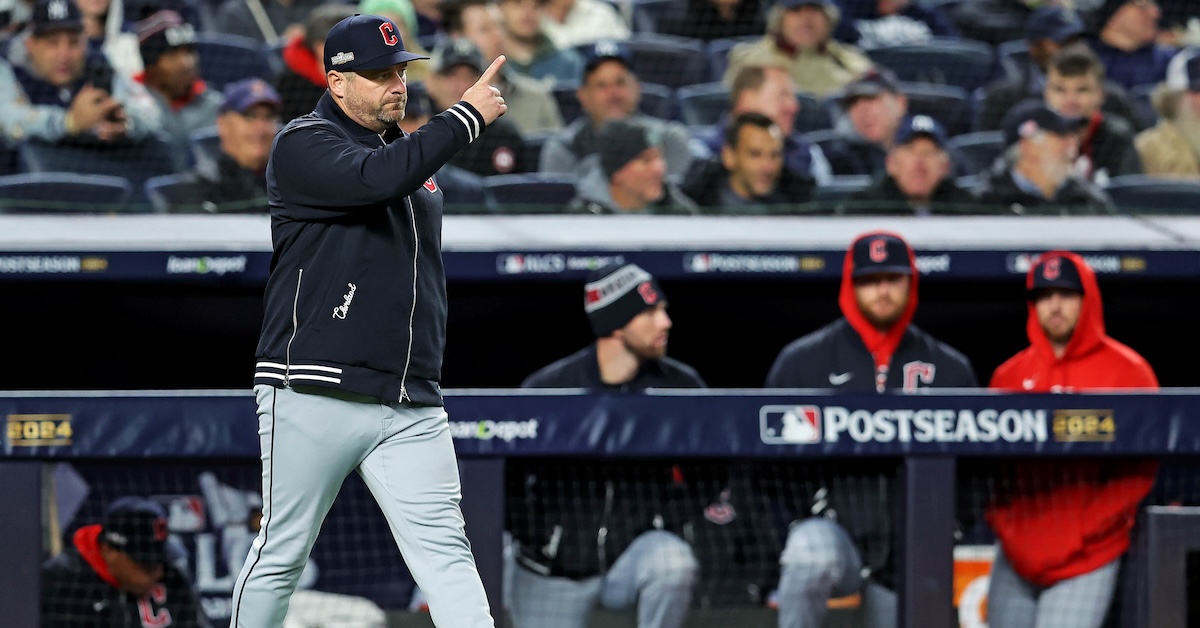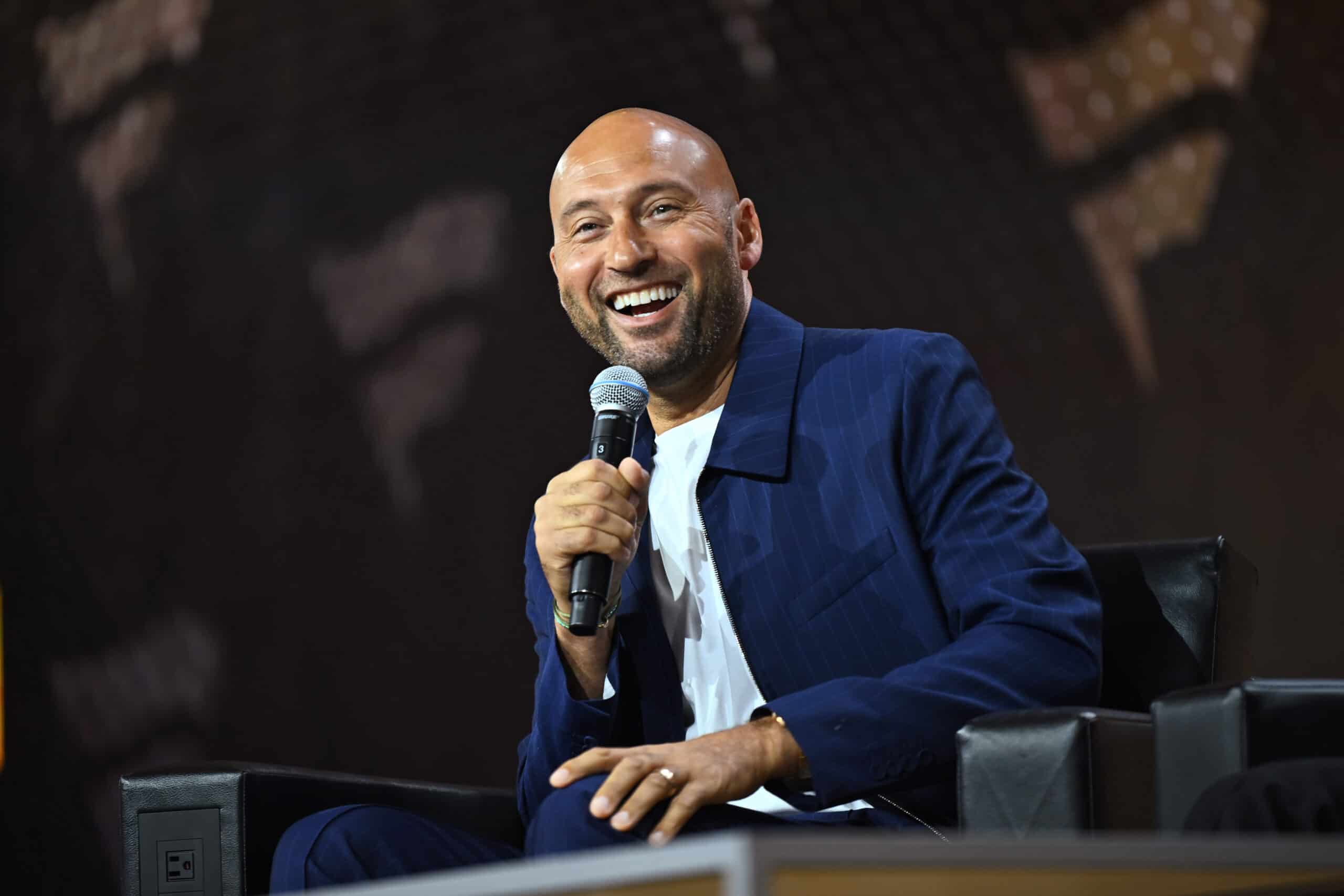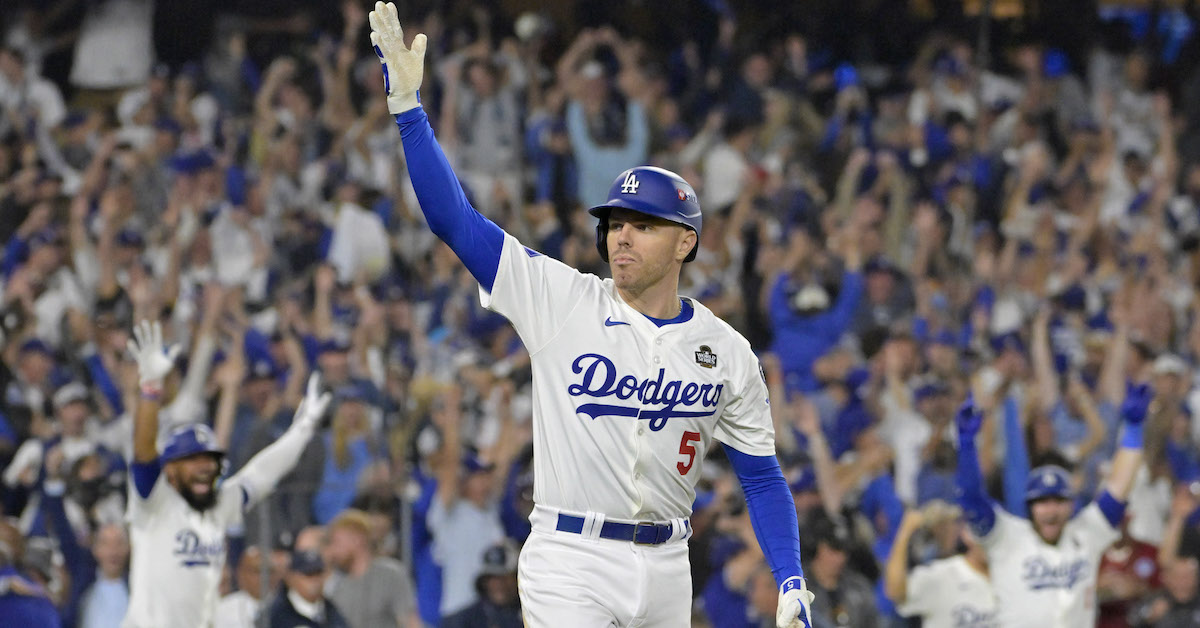[ad_1]
Brad Penner-Imagn Images
I’m trying out a new format for our managerial report cards this postseason. In the past, I went through every game from every manager, whether they played 22 games en route to winning the World Series or got swept out of the Wild Card round. To be honest, I hated writing those brief blurbs. No one is all that interested in the manager who ran out the same lineup twice, or saw his starters get trounced and used his best relievers anyway because the series is so short. This year, I’m sticking to the highlights, and grading only the managers who survived until at least their League Championship series. Today, let’s talk about the first of that quartet to be eliminated: Stephen Vogt of the Cleveland Guardians.
My goal is to evaluate each manager in terms of process, not results. If you bring in your best pitcher to face their best hitter in a huge spot, that’s a good decision regardless of the outcome. Try a triple steal with the bases loaded only to have the other team make four throwing errors to score three runs? I’m probably going to call that a blunder even though it worked out. Managers do plenty of other things — getting team buy-in for new strategies or unconventional bullpen usage behind closed doors is a skill I find particularly valuable — but as I have no insight into how that’s accomplished or how each manager differs, I can’t exactly assign grades for it.
I’m also purposefully avoiding vague qualitative concerns like “trusting your veterans because they’ve been there before.” Playoff coverage lovingly focuses on clutch plays by proven performers, but David Fry and Kerry Carpenter were also great this October. Forget trusting your veterans; the playoffs are about trusting your best players. Juan Soto is important because he’s great, not because of the number of playoff series he’s appeared in. There’s nothing inherently good about having been around a long time; when I’m evaluating decisions, “but he’s a veteran” just doesn’t enter my thought process. Let’s get to it.
Batting: C-
The Guardians started the postseason with a lineup challenge against the Detroit Tigers: a lefty opener with a righty follower. I liked Vogt’s decision to park Fry, who absolutely crushes lefties, at the top of the lineup. The Guardians greeted Tyler Holton rudely in Game 1 of the ALDS; he faced four batters, and they all scored. Vogt didn’t have many more decisions to make in this one; he did pinch-hit for Fry late with lefty Kyle Manzardo, but I think that was just in service of getting Manzardo his first postseason at-bat in a reasonable situation.
Facing Tarik Skubal the next day, Vogt went full platoon. Fry and Jhonkensy Noel both started, as did Austin Hedges (more on him later). That left Manzardo and Will Brennan on pinch-hitting duty; when Will Vest replaced Skubal in the eighth, he faced two pinch-hitters in three batters. Fry did take a platoon-disadvantaged at-bat against Beau Brieske in the ninth, but Fry’s a good hitter, and it’s not like you can make the whole roster out of the platoon advantage.
One thing I liked about Vogt’s style? He wasn’t afraid to start someone and then pull them early if the situation dictated it. Manzardo drew a start against a righty opener in Game 3, but when lefty Brant Hurter checked in, Vogt pulled Manzardo for Fry. Noel pinch-hit for Brennan before Brennan had even batted! I did think it was questionable to start Brennan and bat him seventh – openers don’t usually go seven batters, and Hurter was the likely follower all along – so I give Vogt only half marks, but at least he was willing to make a quick change if necessary. Noel got two cracks at Hurter as a result.
All this emphasis on lefty-righty matchups made Game 4 strange. Vogt started with his usual lineup against a righty starter, with Manzardo and Brennan in the platoon slots. He then stuck with both of them even when a lefty reliever came in. That let the Tigers cruise with their first lefty reliever, then bring in a second lefty, Sean Guenther, for the bottom of the lineup. Vogt countered by having Noel bat for Bo Naylor again. Then he pinch-hit for Manzardo with Fry – but it was Guenther’s fourth batter, so the Tigers brought in Brieske, a righty, to regain the platoon edge. It didn’t matter, because Fry cracked a two-run homer – he’s a great hitter, period. But given how aggressively Vogt was chasing platoon matchups, it was strange to see Fry bat exclusively against righties and Manzardo face a tough lefty.
After a textbook Game 5 – righties against Skubal – we get to the really interesting stuff. In Game 1 of the ALCS, the Yankees had a lefty on the mound in Carlos Rodón, so Vogt started with the normal platoon setup and left Naylor in at catcher. When righty relievers inevitably entered, the lefty bats started pouring off the bench. Manzardo pinch hit for Noel – a strange decision given that Brennan was also available and can play Noel’s position in the field. Brennan ended up pinch-hitting for Fry and playing DH – doing it the other way would have let the Guardians keep their two preferred lefty bats in the lineup. As it was, Manzardo pinch-hit and then was relieved by Daniel Schneemann.
We need to talk about the Austin Hedges thing, though. Hedges batted five times in the divisional round, which is about five more times than I’d want him to bat. Lest you think that’s harsh, he hit .152/.203/.220 this year, his sixth straight year below the Mendoza line, his fifth straight with an OBP below .250, and his third straight with a slugging percentage below .250. He’s a career 50 wRC+ hitter, and he’s on the decline at 31. I know he’s a great defensive presence, but if Hedges is batting for you, something has gone wrong.
Naturally, Hedges pinch-hit for Naylor in Game 1. Then he stayed in the game – the Guardians didn’t carry a third catcher, so he had to – and made the last out of a 5-2 loss, with the tying run in the on-deck circle. Then in Game 2, Vogt put Fry in for an early high-leverage spot against Gerrit Cole. Great decision – only Naylor was due up, which meant Hedges had to catch the last six innings of the game. He struck out with the bases loaded in his first at-bat, in a spot where the Guardians desperately could have used a better hitter. Then Hedges just straight up drew the start in Game 3, and against the righty Clarke Schmidt no less. He had the best game of his playoff life – 1-for-2 with a double and a walk – before getting subbed out in a high-leverage spot.
I suppose I like this more than the previous plan of having Hedges come in for the high-leverage moments, but I still don’t like it very much overall. In Game 4, things finally came to a head. Vogt started Hedges again, and Hedges even drew a walk against the wild Luis Gil. But in his second at-bat, he inexplicably laid down one of the worst bunts I’ve ever seen: It was like a spell had been broken. Vogt pinch-hit for Hedges the next time he was due up, and he didn’t see the field again that series.
I understand that Naylor was slumping coming into the playoffs. I understand that Vogt loves savvy veteran catchers who know just what to call in every situation. But this was egregious. Hedges can’t hit. He hit .083/.214/.167 in the playoffs, a 17 wRC+. He struck out more than a third of the time. It’s not like Naylor is a slouch defensively, either; he’s an excellent receiver and capable blocker. His biggest relative weakness is controlling the running game, but the Tigers and the Yankees don’t really run. Even mired in the worst slump of his life, Naylor posted a better line than Hedges, and that’s even without…
[ad_2]



